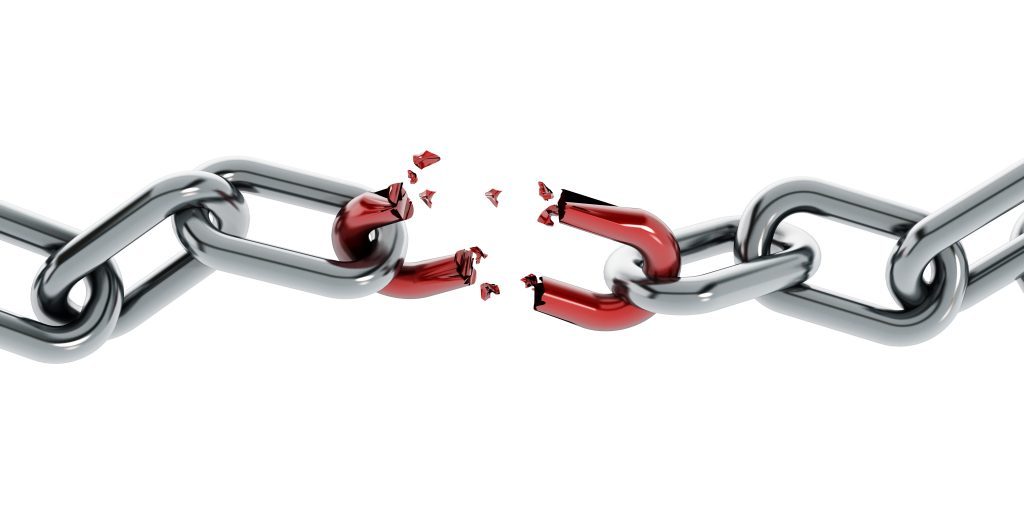Fixing Broken Links on Your Law Firm’s Page Matters to Your SEO
BY Kerrie Spencer

LISTEN
Broken links happen. They are a reality with just about any website, even one that represents your law firm. The question becomes whether to fix them. According to search engine optimization (SEO) best practices, it is best to fix them. However, there are times when a fixed link does not work. How does that affect your firm's SEO?
Why Fix Broken Links?
On websites, links act like signals, and Google uses these signals to rank pages and anchor text. If there are broken links, this hurts your firm's SEO. How they got broken is usually the next question asked, and there are two answers.
First, the link is just bad. It points to nowhere, to a non-existent page, has funky coding or someone mistyped it. Other times, a link simply breaks on your website. Someone at the firm goes in to fix the issue and removes the page but does not redirect it to another page or replaces the page. Now the removed page and its broken link redirect to nowhere. If a broken link needs to be fixed, it needs to redirect to something tangible.
Fixing broken links is important for your law firm's link-building efforts and page rank in Google. While most of the time, fixing broken links works, sometimes fixing links might not work.
Why Fixing Links Might Not Always Work
There are four reasons why fixing links might not work.
1. The links did not count.
Google might not recognize some links. They could be viewed as non-editorial, spam links or manipulative links. In other words, if the fixed link has no value, fixing it may not make any difference.
2. The links were low value.
Links may also be evaluated as being low value or stale, even though they were counted. This could happen on older pages that are not visited often or pages that get zero traffic. Fixing them does not make them valuable.
3. They were redirected to an irrelevant URL.
If you attempt to fix a broken link with a redirect, make sure it is redirected to a relevant URL. If the link points to an irrelevant or non-pertinent URL, it does not improve the law firm's website rankings, and in effect, remains broken despite being fixed.
4. They may not be considered as "live" links by Google.
Another possible reason why redirects do not work is that they have aged out and become ghosts, possibly still seen but not sending signals. Ultimately, no one knows how Google treats older links, which raises the question of what to do when your law firm finds broken links.
Best Practices for Fixing Broken Links
So, you may be asking, is it worth it to fix links? What can your firm do about this issue? What can your firm do to maximize fixing old broken links on its site? Here are some best practices for fixing broken links.
1. Fix Broken Links
If you find broken links on your firm's website, the best thing to do is to go ahead and fix them. We do not know which links Google is not counting. It is worth taking the chance that fixing the link can have your website benefit from it.
2. Prioritize High Authority Pages
Take a good look at your firm's website and prioritize pages and links that have high authority. Make high-value links your focus. High authority pages typically have multiple links pointing to them or links from other valuable pages.
3. Prioritize Links With Fresh Signals
Focus on links with freshness signals. Old pages are not necessarily as important. Focus on pages that get traffic on their own, are regularly updated and get links coming to them. These pages have active, fresh links. If they are broken, fix them because they are high-value links.
4. Redirect to Relevant URLs
Ensure to redirect a link to a relevant URL and not just point everything at a category page that may not be on-topic or to the home page. Take a look at the page you want to redirect traffic to and ask if it is relevant. Does it offer viewers relevant, helpful information, or would it confuse people who used the old link? Do not link a page relating to criminal defense to a page on family law. Always keep relevance in mind when fixing and redirecting.
5. You Do Not Need to Fix Every Link
Do you have a lot of links to fix and do not know where to start? The good news is that you do not need to fix every link.
When links break, work on links with high authority, which are still relatively fresh and new, and ensure the redirect is to the original URL or a relevant one.
LATEST STORIES



